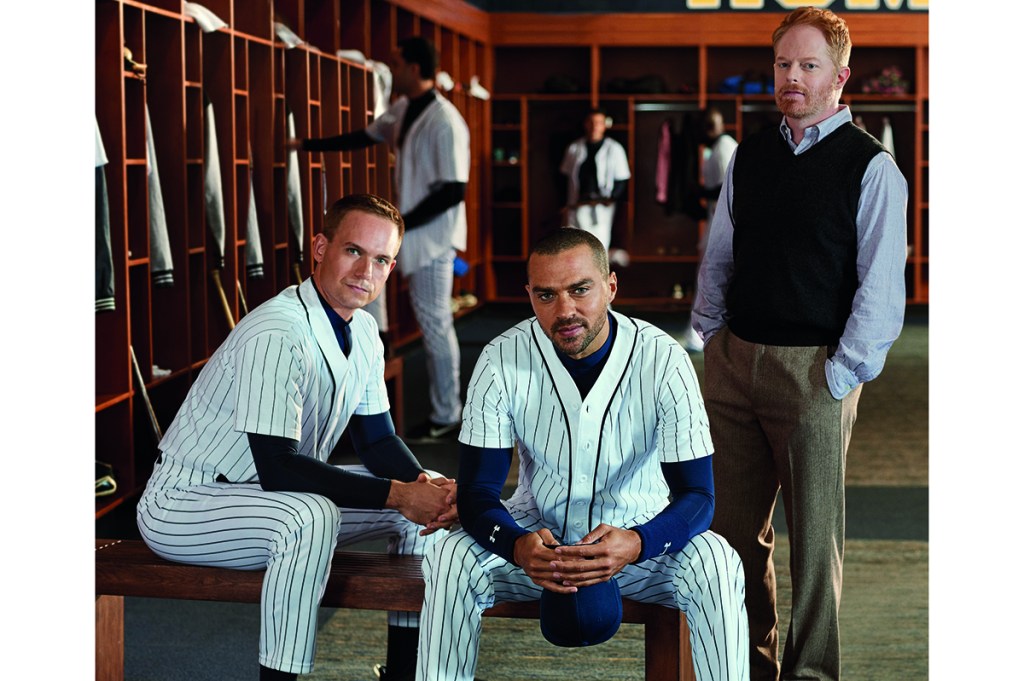“This mob is not the people,” declared Henry J. Raymond in his paper, the New York Times, about the Draft Riots in July 1863. Blue-collar workers in New York, mostly Irish, had begun by protesting a new conscription law, but anti-war sentiment quickly became a pretext for widespread destruction, looting and racial violence. Blacks were hunted, their homes and businesses trashed, and scores of them lynched. Raymond wanted no quarter for the rioters: “Give them grape[shot] and plenty of it.”
The new musical Paradise Square imagines a “little bit of Eden” in the Five Points slum of downtown Manhattan, July 1863, where, we are told, blacks and Irish did not just coexist peacefully for a time but flourished. The plot centers on a dance competition held to raise funds for a tavern; the prize money is set at $300, enough to exempt a draftee from service. What unfolds is a blowsy piece of agitprop, an ideological patchwork draped over a historical frame.
One issue is that, by yoking the competition to draft avoidance, a play celebrating black history ends up valorizing anti-Union agitators. Another is that, in its rush to blame rich, white politicians for everything, it reduces the horror of the riots to a droopy moralizing fable. “Do you know who’s not suffering?” asks the Tammany villain (John Dossett), like a figment of some Marxist fever dream: “These denizens here in the Five Points.” The claim that racial harmony much improved the miserable tenement conditions in the Five Points circa 1863 is more laughable than debatable, especially since Irish outnumbered blacks there fifteen-to-one.
In another bit of propagandizing, Stephen Foster (Jacob Fishel), the famous composer of parlor and minstrel songs, comes in for re-education. His “Angelina Baker” is also presented as a parlor tune, for ridicule, and in an ostensibly authentic form, as a slave song. Far be it from me to militate for Foster as a champion of black dignity, but I’d point out that, first, he saw himself as an abolitionist; and, second, a production aiming to clear skeletons from the closets of American show music might do well to propose a viable alternative — that is, to include a few catchy tunes of its own.
;768:[300×250,336×280,320×100];0:[300×250,320×100,320×50]”]There’s only one memorable number, at the end — “Let It Burn,” in which the owner (Joaquina Kalukango) abandons her tavern to the rioters. But the historical Draft Riots, in fact, left the Five Points untouched. There’s no great irony to point up, no tidy moral about chickens coming home to roost. The mob was too senseless, too wanton in its prejudice, for that.
In Take Me Out, shortstop Kippy (Patrick J. Adams) also speaks of Eden. “We’ve lost a kind of paradise,” he observes, ever since his teammate Darren Lemming (Jesse Williams) came out as gay. Now, in the clubhouse, “we see that we are naked.” In other words, one elephant in the room has drawn attention to the rest — a statement equally true of the general method of this coy play, which interrogates not just homosexuality but with it race, creed, class and masculinity writ large. The 2003 Tony winner provides a time-capsule take on topics that once admitted more levity and breadth of opinion. I’ll wager it’s funnier now than when first produced, and more poignant, too.
Playwright Richard Greenberg’s idea was to soft-pedal the announcement by modeling Darren, the star, on the imperturbable Derek Jeter. Darren shrugs it off like a ho-hum day at the plate. “If I’m gonna have sex,” he explains to Kippy afterward — “and I am, because I’m young and rich and famous and talented and handsome so it’s a law — I’d rather do it with a guy, but when all is said and done, Kippy? I’d rather just play ball.” All well and good as far as preferences go, but it doesn’t quite explain his desire to explain those preferences so publicly. Greenberg’s aware of this, and it’s in the hazy space between words and actions that the drama unfolds. As such, the whole play has a provisional, tentative air, inviting scrutiny of double entendres, subtexts and overtones throughout.
Controlling all that ambiguity makes for a tightrope act, and the play sometimes teeters. The character of Davey Battle (Brandon J. Dirden), Darren’s rival and best friend (!), is overdetermined; some of the race-relations subplots are lazily drawn. But most of the action is sure-footed. Darren’s agent, Mason Marzac (Jesse Tyler Ferguson), has a touching monologue on the newfound charms of baseball, and the depredations of the principal antagonist, hick bigot Shane Mungitt (Michael Oberholtzer), are handled with special tact. Director Scott Ellis hits a right snappy pace. Costume designer Linda Cho scores points for placing tobacco tins in the players’ back pockets. I don’t know who to thank for the nudity, but it’s warranted and effective.
This article was originally published in The Spectator’s June 2022 World edition.
;768:[300×250,336×280,320×100];0:[300×250,320×100,320×50]”]
























